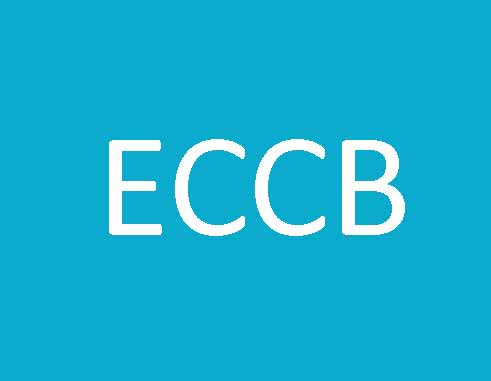EFFECTIVE the 1st day of July 2015, the Eastern Caribbean Central Bank shall discontinue the issuance of the one cent and two cent coins to ECCU commercial banks and the commercial banks shall cease to issue the one and two cent coins to consumers during transactions at any of their branches.
Here are a few things that you should know about the changeover:
1. Why are the one and two cent coins being withdrawn?
The significant cost of producing and handling the coins coupled with their very low purchasing power and the public’s perceived inconvenience in using the coins are the main reasons for withdrawing the coins. Everyone will benefit from the withdrawal.
2. What will happen on 1 July 2015?
The ECCB will stop issuing one and two cent coins to commercial banks and the commercial banks will no longer issue these coins to the public. Rounding rules will be applied for the settlement of cash transactions. (Kindly refer to answers for questions 5-12)
3. Can I still use the one and two cent coins after 1 July 2015?
Yes. The coins can still be used to purchase goods and services as they remain legal tender up to 30 June 2020. Alternately the coins can be deposited or exchanged for face value at any of the commercial banks within the Eastern Caribbean Currency Union (ECCU) during the five year period ending 30 June 2020.
4. From 1 July 2015 should businesses give me one and two cent coins as change?
Businesses will be encouraged not to give back one and two cent coins as change since the coins are being removed from circulation.
5. If I cannot get one and two cents coins back as change, what then will happen?
The rounding rules will be used for settlement of all cash transactions once the exact payment is not made.
6. How will rounding work?
Only cash transactions require rounding. The rules indicate that when the total transaction value ends in x cents and payment is by cash rounding should be done up or down to the nearest five cent increment as follows:
• Where the total cash payment is of a value where the last digit after the decimal point is 1 or 2, it shall be replaced by a 0. Example if the total is EC$45.22 the amount to be paid is 45.20
• Where the total cash payment is of a value where the last digit after the decimal point is 3, 4, 6, or 7, it shall be replaced by a 5. Example if the total is EC$45.26 the amount to be paid is 45.25
• Where the total cash payment is of a value where the last digit after the decimal point is 8, or 9, it shall be replaced by a 0, and the digit to its left will be incremented by 1. Example if the total is EC$45.29 the amount to be paid is 45.30
• Where the total cash payment is of a value ending in 0 or 5, it shall remain unchanged.
7. Will this rounding system affect all my transactions, if not, what happens to my other transactions?
The rounding system will only affect cash transactions.
Rounding will not be applied to non-cash payments such as cheques, debit and credit cards. Payments made using these non-cash methods do not need to be rounded, because they are settled electronically to the exact amount.
However all transactions for which EC cash will be given back as change or for settlement require rounding, such as the exchange of foreign currency, or the use of third party cheques.
8. Do businesses/retailers round the prices of individual items?
Only the total in a cash transaction should be subject to rounding. The price of individual items, as well as any duties, fees or taxes should be calculated in their exact amount prior to rounding.
9. Will the rounding rules affect taxes?
No. The price for individual items, as well as duties, fees or taxes will be calculated as usual in their exact amount prior to rounding.
10. Are businesses/retailers expected to follow the ECCB rounding rules?
The rounding rules will be adopted into legislation by all ECCU member governments for cash transactions. Businesses/retailers are therefore expected to round the total (or the amount owed) of any cash transaction in the prescribed manner from 1st July 2015.
11. If I have the exact change, will the business still need to round up or down?
No. If you have the exact amount in cash, your total bill will not be rounded. Although 1 and 2 cent coins will no longer be issued, they will remain legal tender up to 30 June 2020 and thus can be used for purchasing goods and services or exchanged at financial institutions until then.
12. When I request a refund, is the amount subject to rounding?
If a refund is paid out in cash, businesses are expected to round the total in accordance with the rounding guidelines. The same applies to the balance remaining/owed where third party cheques are used to effect payments.
13. Has any other country done this before?
Yes. Over the years many countries have eliminated their smallest currency denominations. Canada withdrew its penny in 2013 and Barbados withdrew its one cent in May 2014.














